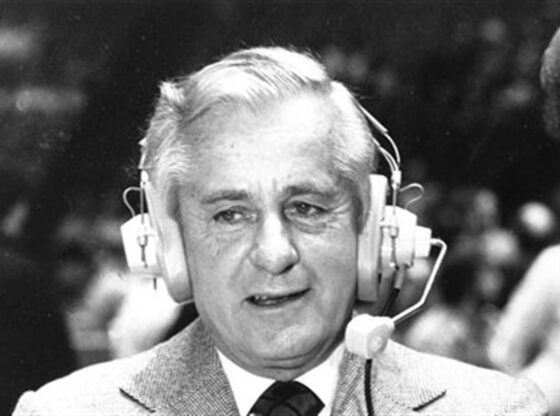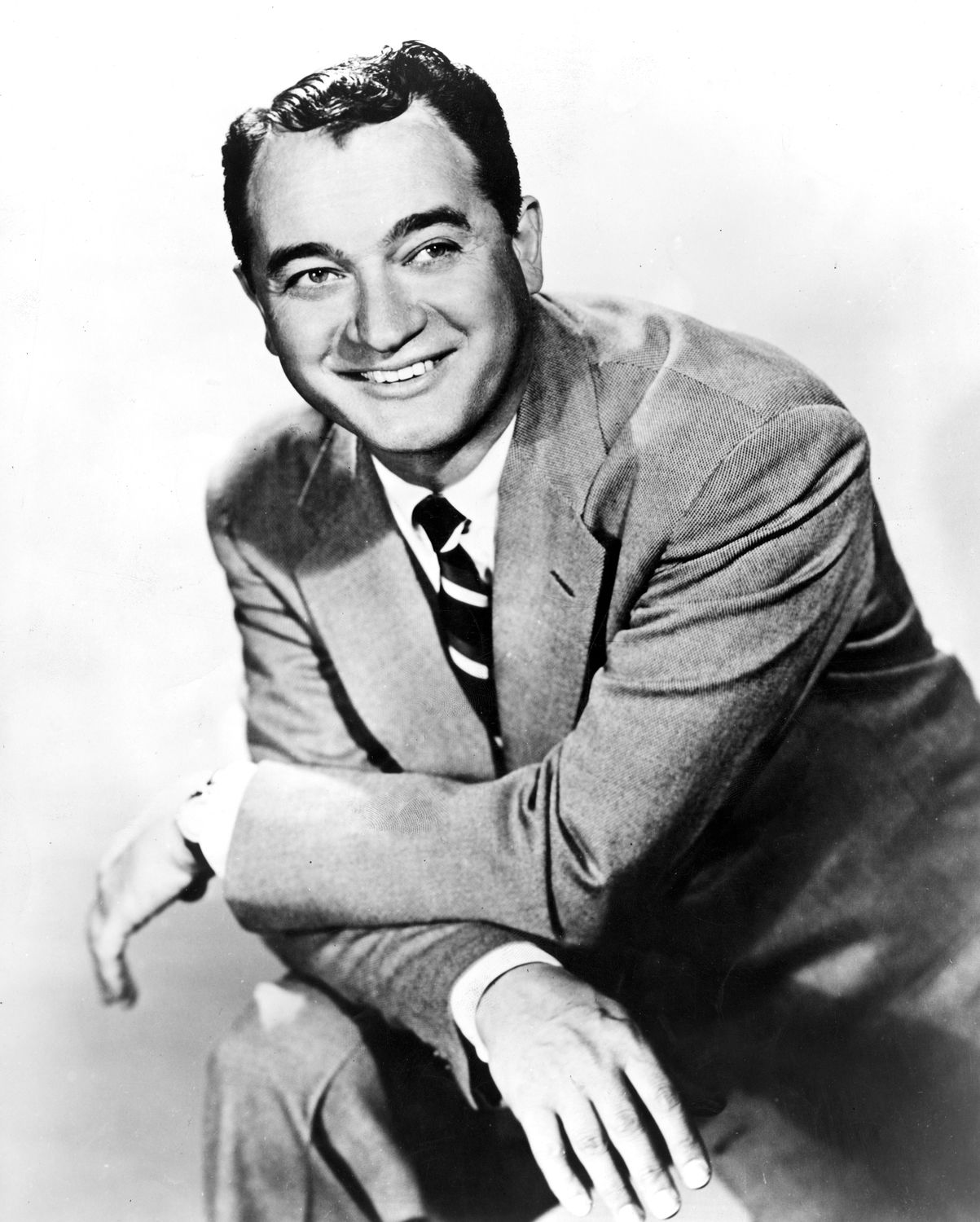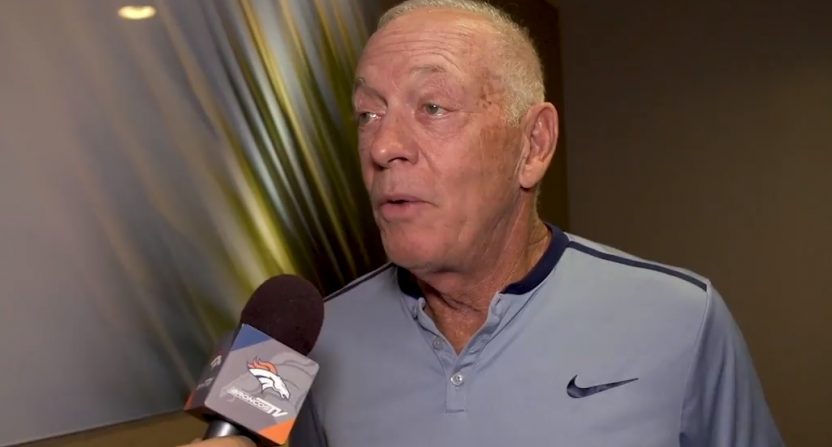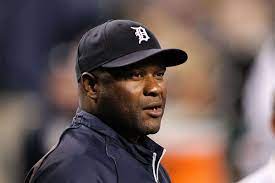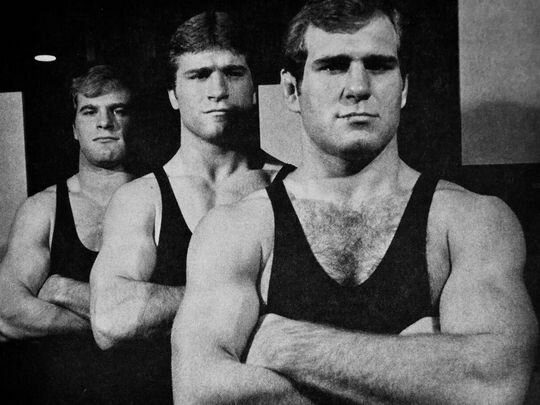Curtis Edward Gowdy was the voice of sports for the middle part of the 20th century.
Born in Green River, Wyoming on this date in 1919, he moved to Cheyenne at age six. He led the state in scoring as a high school basketball player before attending the University of Wyoming, where he earned three varsity letters in basketball and three more in tennis despite being only 5’9” tall. After graduating in 1942 with a degree in business statistics, he joined the Army but received a medical discharge less than one year later due to a bad back, something that would plague him throughout his career. He returned to Cheyenne and made his broadcasting debut calling six man high school football games. He also worked at tiny KFBC radio station and was a sportswriter and sports editor for the Wyoming Eagle newspaper. He moved to Oklahoma City in 1946 to broadcast University of Oklahoma football, Oklahoma State basketball and minor league baseball for KOMA radio. His reputation spread quickly, leading to an offer from the New York Yankees to replace Russ Hodges on radio for the 1949 season. He honed his craft under the tutelage of the great Mel Allen and also covered college basketball, college football, rodeo and track meets for both CBS radio and television.
He was hired as play-by-play man for the Boston Red Sox prior to the 1951 season at the age of 31. For the next 15 years, he called games on WHDH radio and three Boston TV stations while also doing nightly sports reports for WHDH and called Ted Williams’ last at bat as well as Carl Yaztremski’s first, both with the Red Sox. He had his first network assignment with ABC-TV in 1960, where he covered the first five AFL seasons and also did college games in 1960 and ’61. NBC hired him in 1965 as their national announcer for baseball, covering Game of the Week, Monday Night Baseball, All-Star game, playoffs and World Series and teamed him with Al DeRogatis for football after the network obtained the contract to broadcast AFL games. He also hosted The American Sportsman for ABC beginning in 1965, a series that lasted for twenty years. He famously called the New York Jets victory in Super Bowl III, the infamous “Heidi Game” [Daily Dose, August 10], Hank Aaron’s 715th home run in 1974, Franco Harris’ “Immaculate Reception” in 1972 and what many consider to be the greatest World Series contest of all time, Game 6 in 1975, when Carlton Fisk hit a walk off homer for Boston to beat the Cincinnati Reds in the bottom of the 12th inning. He was removed from baseball following that series but continued doing football through 1978, the Olympic games through 1984 and later provided commentary for HBO’s Inside the NFL.
Mr. Gowdy was invited by Roone Arledge [Daily Dose, July 8] to provide play-by-play for Monday Night Football for its inaugural season in 1970 but he was bound by his contract with NBC Sports and declined. Over the course of a career that spanned five decades, he broadcast 13 World Series, 16 MLB All-Star games, 9 Super Bowls, 14 Rose Bowls, 8 Olympic games and 24 NCAA basketball Final Fours. In 1970, he became the first broadcaster to win the George Foster Peabody Award for distinguished and meritorious excellence in radio and television. Gowdy wrote two books, has been inducted into 22 Halls of Fame and, in 1971, had a state park in Wyoming named after him.
Curt Gowdy died at age 86 in 2006 of complications from leukemia. Three years earlier, he called his final game when the Yankees played the Red Sox at Fenway Park, for ESPN.

